I was writing late last night and, on re-reading what I had written became aware of an odd juxtaposition of certain words. They took me straight back to a book where a particular passage had left its mark. There was no thought of copying; no intent to re-use or appropriate the work of another writer, and what I had noticed was no more than three words long. Perhaps it was the context rather than the phrase that had been the reminder. Even so, it got me thinking.
With all the words that have been written by the human hand over the millennia, are there any that have been left unsaid? Can we ever write without plagiarising, consciously or unconsciously the work of another who has gone before? I remember reading once that Shakespeare had summarised every human emotion in his work. That is open to debate, of course, and the perspective from which he wrote was a personal one. We can only ever write from our own understanding, even where we build a character from imagination who has an utterly different nature from our own. The lens through which we view them is still ours alone… our view of their view.
With all the billions of words that have been consigned to stele, parchment, stone and paper, let alone the influx of communication brought about by computers, can we possibly write anything original? It is said there are only seven basic stories, though there are many who would argue that too. The majority of the arguments are based around where you draw the line for sub-plots and details, but even so, there seems to be agreement that there is a finite number of stories that can be told within those broad lines. As stories reflect life, either in literal or symbolic form, that must therefore mean that there are also a mere handful of stories we can actually live.
Yet our human experience is as vast and as varied as one could possibly imagine, our individual stories as numerous as the grains of sand on a wave washed beach. Aren’t they? Perhaps not as much as we would like to think. The details, degree and order may differ, but the broad themes of life seem to touch us all. It is through this shared experience that we can communicate effectively. How could we write of love or loss, of laughter or adventure if these concepts were utterly alien to our readers? We have to draw an answering response from mind or emotion before a reader can engage with what we write. They have to see through the mirror of their own experience. We have to allow them to draw upon the shared experience of human life and we have a finite number of words with which to paint our stories.
In any language there are only so many ways of forming a phrase. Of the millions of words, only a handful will go together with each other and make a specific kind of sense that conveys meaning. It seems highly unlikely that any of these possible phrases have never been used before. Many phrases carry a particular emotional content or call up an image through colloquial use that means something very different from the literal interpretation. We use these sayings all the time and understand each other through them. So where does plagiarism begin and end? Where is the line between drawing inspiration from another writer, paying a tribute in homage to their thought and skill and simply taking their ideas and making them your own? It is a thorny question for the writer who has probably been a reader all their life, devouring the written word with greater regularity than hot dinners.
I am not talking about the blatant plagiarists who copy a plot wholesale or try to take credit for work not their own, that is a different matter. I think that as with most things, it is the intent that is important. There is an alchemy that grows from the knowledge gleaned from those multiple sources as we ourselves grow, seeing understanding unfold for us as individuals, drawing inspiration from those who have passed this way before. There are phrases that stand out for us with a meaning perhaps visible to others, perhaps not… odd images painted by pens long run dry that open up a world of possibility for us. If such things creep quietly and unnoticed into our work, then perhaps that is not plagiarism but homage. Wouldn’t it be nice to think someone, one day, would pick up a musty, dog-eared volume and carry a phrase forward that we had brought to life for them?

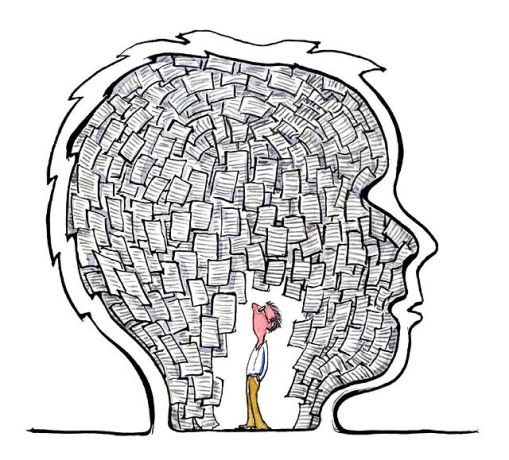

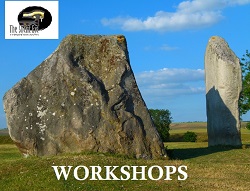



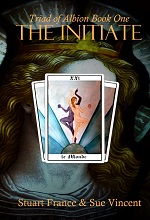


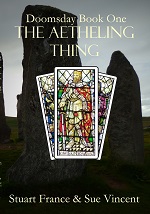
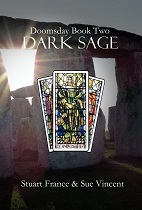
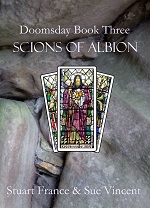







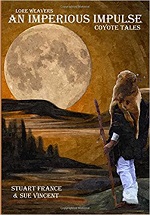


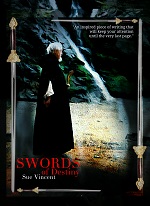

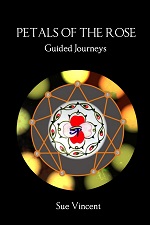

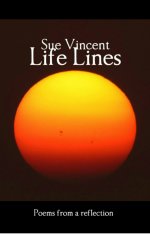
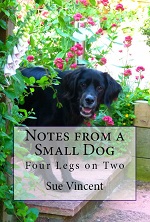



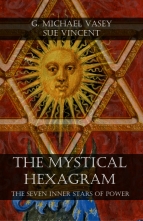

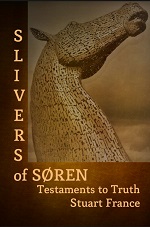


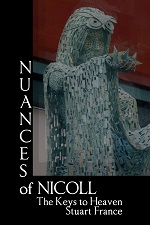


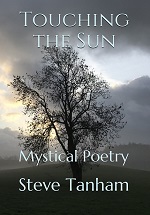

Interesting exploration. For me it is not the combination of words but the combination of sentences and paragraphs and chapters that make a work uniquely the perspective of the author. I’m sure we have ALL used identical sentences, even if we truly never saw them in another’s work – but they transform in context.
xx,
mgh
(Madelyn Griffith-Haynie – ADDandSoMuchMORE dot com)
ADD Coach Training Field founder; ADD Coaching co-founder
“It takes a village to educate a world!”
LikeLiked by 2 people
I don’t see how we can avoid it… yet we all manage to create something new every time we speak or write. xx
LikeLiked by 1 person
My thinking as well.
xx, mgh
LikeLiked by 1 person
That is a lovely thought Sue! And it is hard to write a truly original piece, if we think of it like that…
but if we write from the heart, and honestly, it is only showing our feelings and thoughts… which are bound do have been experienced by someone else,at some time…!
LikeLiked by 1 person
But never quite exactly the same 😉 x
LikeLiked by 1 person
No, exactly!
LikeLiked by 1 person
If I am taking part in a writing challenge I always write my post beofre reading what anyone else has written on the subject, as I do not want to be influenced in any way, even subconsciously. I am sure everything has already been written in so mant ways, but they way we convey it, and express our own personality, can make it fresh and original.
LikeLiked by 1 person
That’s the crux of the matter… being yourself and writing from where you are centred…
LikeLiked by 1 person
Exactly! 🙂
LikeLiked by 1 person
I like very much your take on this, Sue. I often find the same thing happening, small phrases creeping into my work from stories I’ve read before. If they are recognisable I sometimes leave them in as a deliberate homage, and I like the idea that maybe one day, someone might do the same with my own writing. Like you say though, it is a fine line to dance and care needs to be taken – it would be horrifying to write something and find it had been written before (apparently this happened to Helen Keller). I would never in a million years consciously take an idea, but the subconscious can do funny things.
And I would agree about the finite number of stories (though seven seems a little low!) – however, it is our own unique take on the plot, based upon our own unique life experiences, that makes them fresh again. 🙂
LikeLiked by 1 person
We hold all we have read deep in memory…Not surprising if things creep up to the surface now and then. Yes it would be nice to think what we have written might mark someone enough to do that too x
LikeLiked by 1 person
Absolutely 🙂 x
LikeLike
Reblogged this on Anita Dawes & Jaye Marie.
LikeLike
Thanks, Jaye x
LikeLiked by 1 person
no wonder we have so much trouble coming up with an original thought or idea!
LikeLike
But we can all write from our unique perspective 🙂
LikeLiked by 1 person
you probably wouldn’t say that if you could see my perspective…
LikeLike
Whatever the centre of our own being, the persepctive is unique 😉
LikeLiked by 1 person
Interesting questions. I think the ability to be 100% original is no longer an option since everything can be connected to something previous. Even basic concepts and emotions create a bridge. I really do think bridge is the right word. We’re inspired by the world, which includes these previous stories. Ancient man was inspired by real events and mythology, so why can’t modern man do the same with older tales. The difference is in our delivery and personal twists, which should be enough. After all, a big reason to read fiction should be to have fun. Picking something apart for being similar to a previous work is one of the problems killing creativity these days.
LikeLike
I agree with you, Charles. And each time inspiration is drawn from an earlier source we add a layer of richness to how it is understood and shared.
LikeLike
Very well said. Wish everyone saw it that way.
LikeLiked by 1 person
An interesting post, Sue. I sometimes jot down a phrase I particularly like in whatever I’m reading and try to re-word it but it never works. The original phrase is perfect and my tweaking only introduces imperfections. It would be lovely to think something I wrote was carried forward in someone else’s work.
What I find truly amazing is what can be done with only 26 letters (at least in our English alphabet). The same is true of eight musical notes used to create a world of music. I imagine some phrases must be asorbed and used in other peices, there, too.
LikeLike
You can hear it sometimes with music…yet there is an infinite variety of expression. So too with words.
LikeLike
Pieces – I can spell, honest.
LikeLike
🙂 But sometimes our fingers can’t ‘)
LikeLike
I was just reading Gary Snyder making a comparison between traditional arts, based on what is handed down with no “artist” assigned to it (but of course each teller or singer or maker leaves his/her own mark on it)–and the way we now need to take individual ownership of our creations. Not making a judgment, really, just an observation. But whatever we produce has many parents; it’s not just our “own” creation. (K)
LikeLike
I agree, Kerfe, and the traditional tales of our forefathers can have no ownership’ attached… nor should they as they are born from shared experience. Something we carry forward, whether we realise it or not.
LikeLiked by 1 person
“The thing that hath been, it is that which shall be; and that which is done is that which shall be done: and there is no new thing under the sun.” The only thing new is our individual perspective.
LikeLike
It has been known about for long enough…yet still we argue ownership of words.
LikeLiked by 1 person
I agree. We are all individuals. Maybe there are only seven stories, if you just look at basic plot, but we read stories for other reasons than basic plot. We read about -people- and, well, we are all individuals. It doesn’t matter if I use a phrase that’s been used a million times before and a plot that was old when the Odyssey was written, if I am staying true to myself and write from my experience or imagination about unique people, real or imaginary, it will be new and original. And I hope that the way I put together these ancient phrases and words will sound out in my voice.
Voice – They say writers must be readers and perhaps you hit it – we unconsciously borrow from what we read, so the more we read, the larger the universe that we borrow from becomes and the more individual what we pull from it is – that is part of how we create our unique voice.
LikeLike
True, Trent….and the richer the pool in which we fish for inspiration, the deeper the Voice will be. Telling stories is a sharing, heart to heart… always unique.
LikeLiked by 1 person
Reblogged this on Of Glass & Paper and commented:
“If such things creep quietly and unnoticed into our work, then perhaps that is not plagiarism but homage.”
LikeLiked by 1 person
That would be cool … the best kind of immortality there is. 🙂 … apart from a Brigadoon-ish one, of course! 😀
LikeLike
I think I’d rather have this one 🙂
LikeLiked by 1 person
I think you’re right, Sue. We do often find ourselves writing a few words perhaps not intentionally that we’ve read somewhere. I often worry when I do my blog posts because I do borrow sentences from other’s blogs to define what the link is about. It is not intentional, merely me trying to bring notice to what I feel they are trying to say/review etc.
LikeLike
I don’t see how we can help drawing on our exerience of words to shape what we write.
LikeLiked by 1 person
I agree!
LikeLiked by 1 person
There is a thin and delicate line between homage and plagiarizing. I have plagiarized by accident while writing a piece of music that apparently Chopin previously wrote … and writing about a book that was an almost exact duplicate of something I had (apparently) read elsewhere. To be fair, both events took place when I was maybe 12?
LikeLike
We probably all do it far more often than we realise… the intent is the thing where deliberate plagiarism in order to gain credit is concerned. Othewise, it is homage or a shared touch of inspiration.
LikeLike
Reblogged this on Stuart France.
LikeLiked by 1 person
Pingback: Writing Links 3/20/17 – Where Genres Collide
In my view, what we read will definitely influence our own writing and thinking. That is why reading is so great. I do think that while you may be influenced by someone else’s ideas and style of writing, you will always repackage it quite significantly to arrive at your own story line and conclusion of a series of thoughts and events. That is the differentiating factor which means that it is not plagiarism but rather inspiration.
LikeLike
I agree, Robbie. Reading is the best thing a writer can do to add depth to their work.
LikeLike